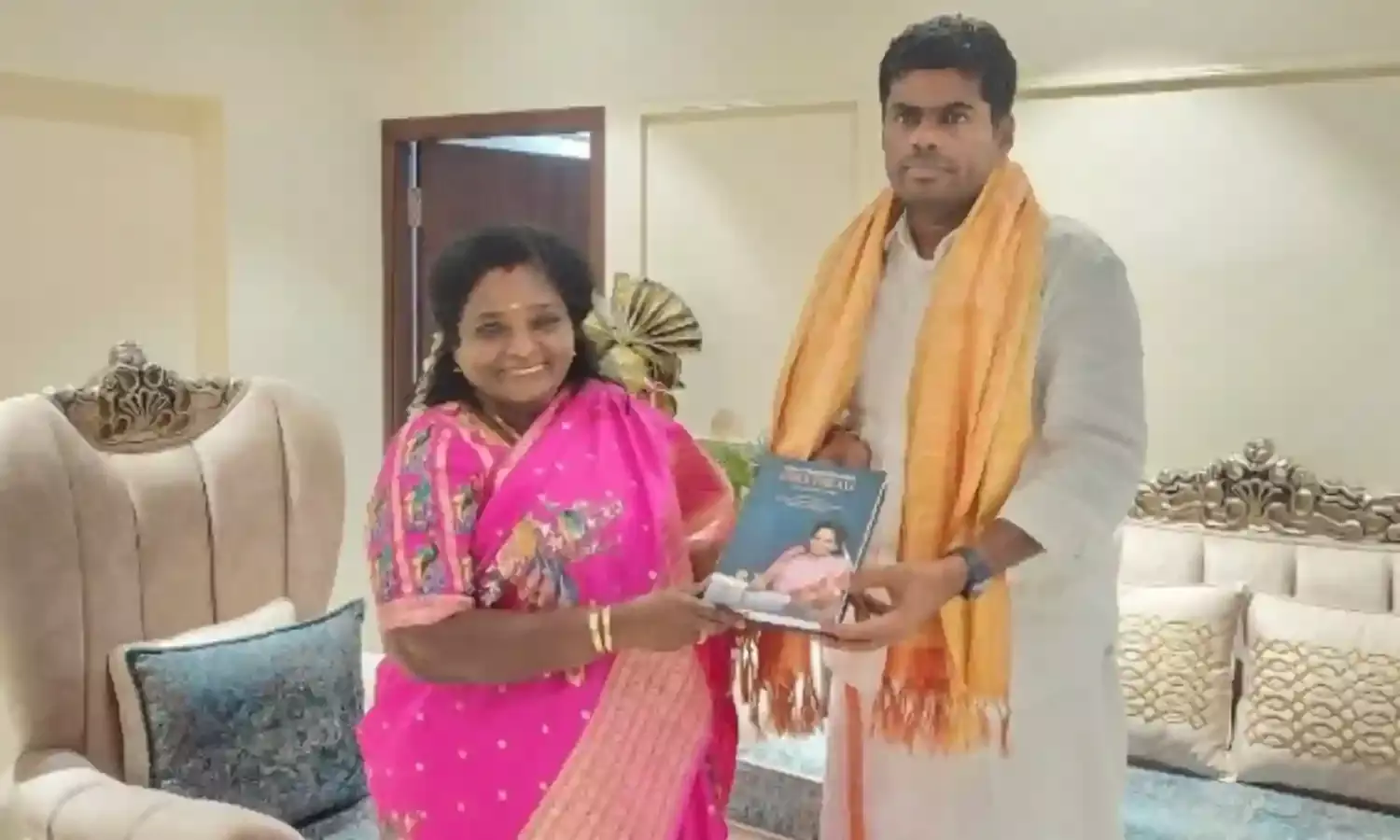
The Bharatiya Janata Party’s units in Tamil Nadu and Kerala are now in the midst of a blame game following the party’s debacle in the two states in the recent Lok Sabha elections.
Though individuals are blamed, the truth is that in both states, the BJP, from the top to the bottom, had deluded itself with unrealistic expectations.
Now, there are calls to change the state unit presidents. In Tamil Nadu, a full-blown war had broken out between BJP’s state president K. Annamalai and former president Tamilisai Soundararajan. Both had failed to make it to the Lok Sabha, though the party leadership in New Delhi and the pro-BJP media had boosted their prospects.
Annamalai’s chances were rated as high because of his past as an IPS officer, his being a member of the dominant caste (Gowndar) in his constituency Coimbatore, his aggressive campaigning style and the backing of BJP’s money power.
Tamilisai Soundararajan who contested from Chennai-South, is a medical doctor, a former Governor of Telangana and is the daughter of Congress leader and Tamil scholar the Late Kumari Anandan. She was expected to bag South Chennai, which has a large population of educated and upper caste Hindus, mostly Brahmin, who were the BJP’s natural adherents.
But both Annamalai and Soundarajan failed to make it to the Lok Sabha because Tamil Nadu was in the middle of a big wave in favour of the Dravida Munnetra Kazhagam-Congress alliance.
Failure at the polls brought into the open flaws in the state BJP under the stewardship of Annamalai. The commonest criticism against Annamalai was his arrogance and his hostile reactions to media queries, often going to the extent of threatening those who questioned his actions in press conferences. The joke was that he was running the state BJP as if it was a police station.
Tamilisai’s complaint against Annamalai was that he had admitted anti-social elements to the BJP. She was also of the view that the BJP would have done much better if it had retained its alliance with the AIADMK, an alliance which was made impossible by Annamalai’s intemperate remarks against AIADMK leader, the Late J. Jayalalitha, and the icons of the Dravidian movement like Periyar E. V. Ramaswamy Naicker and C. N. Annadurai.
However, at this point of time, it appears that the central leadership of the BJP is firmly behind Annamalai. Prime Minister Narendra Modi had publicly praised him, and Home Minister Amit Shah had reportedly castigated Tamilisai at Chandrababu Naidu’s swearing-in ceremony in Hyderabad.
Tamilisai had shown her dislike for Shah by not greeting him on the dais. Shah summoned her immediately, and wagging his finger at her, is said to have sternly asked her not to criticise Annamalai.
Taking the cue from Shah, BJP’s state social media cell vice-president Karthik Gopinath, put out a post on X saying: “That looks like a strong admonishment from Amit Shah ji to Tamilisai. But what could be the reason for this public warning ? Unwarranted public comments?” Gopinath is a supporter of Annamalai.
In a riposte, the state BJP’s former intellectual wing functionary Kalyan Raman said on X: “What is happening is a gleeful misinterpretation / jumping the gun, once again being engineered by @annamalai k, to keep himself away from voices of dissent emanating from people like me. Voices of dissent lead to course correction. Any effort to suppress such voices will lead to a collapse of the party system, which is already damaged under the presidency of Annamalai.”
With the central leadership seized of the matter, both Tamilisai and Annamalai are now silent. Neither Annamalai nor Tamilisai can afford to annoy the Central leadership because both have their political limitations in the state.
“There is no constituency yet in Tamil Nadu for a Hindutva party as the atmosphere in the state is not yet vitiated by religious fanaticism. The state is wedded to social justice for the Backward Classes and Dalits rather than to any religion.
The BJP cannot get a foothold in Tamil Nadu without an alliance with a Dravidian party which believes in secularism and social justice. In the just-ended elections, the BJP-led National Democratic Alliance (NDA) had a chance of winning in only one constituency, namely, Dharmapuri.
But that was because the NDA candidate there, Saumiya Anbumani, was a nominee of the Pattali Makkal Katchi (PMK), a Dravidian party like the DMK and AIADMK.
Meanwhile, though the BJP created history in Kerala in the recent Lok Sabha elections by getting one of its candidates, Suresh Gopi, elected from Thrissur constituency, there is in-fighting in the state unit.
Controversy erupted over who should be credited for Gopi’s victory. The state leadership says he won because of its relentless campaign. But others say that the leadership had nothing to do with the victory as Gopi was chosen by the party high command in Delhi and he was himself very popular as a cinema star.
It is also said that Gopi had the support of a section of the Syrian Christian community which had become pro-BJP because of BJP’s anti-Muslim stance.
There is also a difference of opinion over the reasons why Union Minister Rajeev Chandrasekhar narrowly lost to Shashi Tharoor of the Congress in Thiruvananthapuram. Here too, the state leader K. Surendran and V. Muralidharan are blamed for the loss.
Old BJP hands in Kerala allege that Surendran and Muralidharan were in cahoots with the ruling Communist Party of India-Marxist. Surendran is also faulted for rude behaviour. He had used derogatory language to humiliate political commentator Sreejith Panickar in a TV interview.
Prime Minister Narendra Modi and Prakash Javadekar, in-charge of the state, are criticised for hyping the prospects of the BJP in Kerala. Javadekar claimed that the BJP would win at least five seats and the PM had claimed that the party’s tally would touch double digits.
Javadekar is blamed for misleading Modi. Surendran’s position as state President is said to be under threat.

